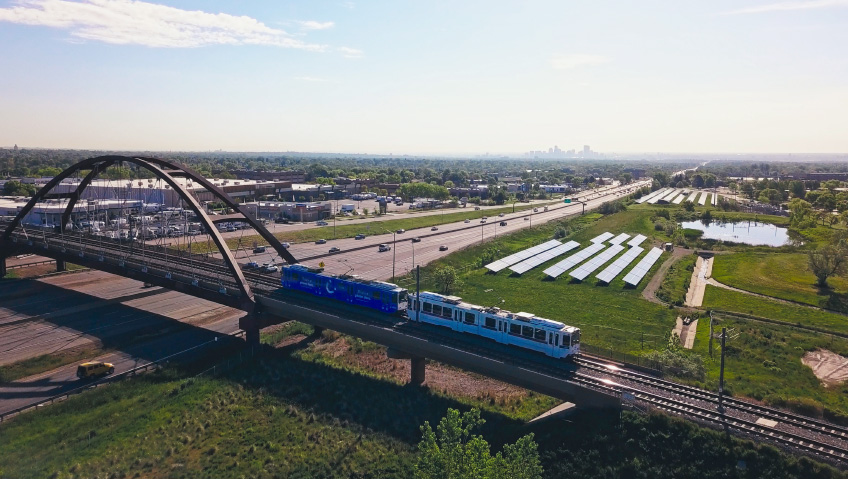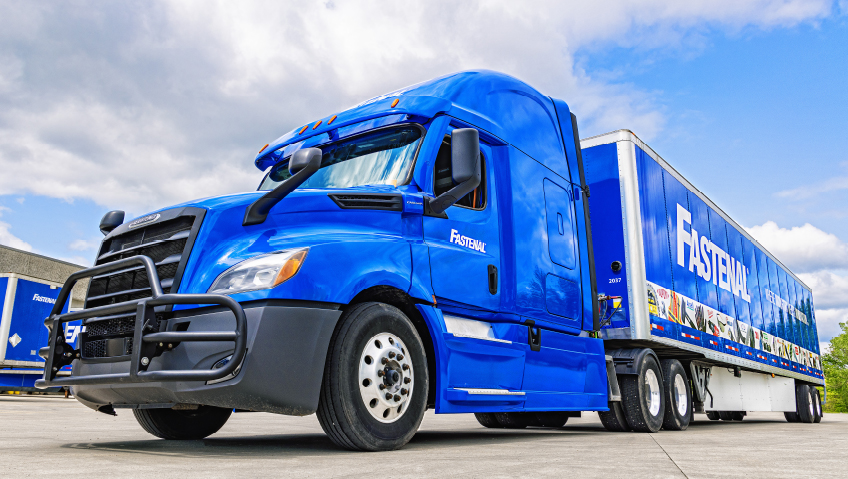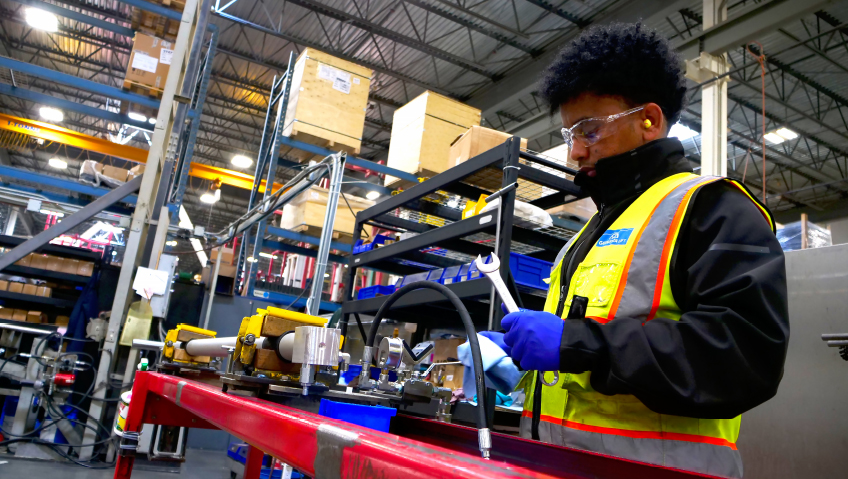In an era where sustainability and community engagement are increasingly becoming central to business practices, leaders across various industries are working tirelessly to implement and prioritize these values. From reducing their carbon footprints to making a meaningful impact in their local communities, many companies are reimagining their operations.
This evolution is particularly evident in the restaurant industry, where sustainable practices are now seen as a key to long-term success.
At HopCat, growth isn’t just about opening new restaurants; it’s about building a company that thrives on community, sustainability, and long-term vision. From supporting internal career development to championing eco-friendly practices, the company is investing in the people and principles that fuel its success.
CEO Craig Stage has led HopCat’s evolution from a few local restaurants into a multi-state operation with a bold and measured growth strategy. Over the past five years, HopCat has experienced consistent expansion, now with exciting new locations launching in Southgate, Michigan, and eyeing new locations throughout the region.
“While we’re not trying to take over the country,” Stage says, “we’re not going to stop growing.” His philosophy centers around smart, intentional growth. “We know what it takes to run great restaurants, and we know what kind of markets we want to be in.”
HopCat is doubling down on its Michigan roots while tapping into new communities. “We’re excited to expand into areas where we can make a meaningful impact,” Stage shares. “We want to be the kind of business that feels like part of the neighborhood.”
With recent leadership changes, HopCat is walking the talk when it comes to internal promotion. Craig Stage stepped into the role of CEO, Andrew Woodruff was instated as CFO, and Michele Ary was elevated to Director of Marketing, all after demonstrating commitment, innovation, and a deep understanding of the business.
“There’s a lot of respect here for people who show up and give their best,” says Woodruff. “This is the kind of place where good ideas are taken seriously, where no idea is considered a bad one.”
Woodruff, who brings nearly a decade of restaurant finance experience, says internal mobility was a big part of his decision to join HopCat. “You want to work somewhere that believes in your growth. HopCat is that kind of company.”
Ary, who began as a social media intern in 2019, echoes that sentiment. “I’ve been supported every step of the way,” she says. “This company takes risks on people they believe in.”
Stage began his journey with the company in 2014 as a restaurant manager at a local HopCat, where his mentors nurtured his leadership potential. Over time, he advanced to Vice President of Operations before eventually stepping into the role of CEO. He shares, “I get excited when I see people grow from line cooks to general managers to directors. That’s the kind of growth that matters most.”
In fact, promoting from within has become a pillar of HopCat’s culture. It sends a message to employees at every level that hard work and loyalty are recognized and rewarded. The leadership team believes that employees who have grown with the company bring a level of insight and passion that’s hard to replicate, and this focus on internal development also helps foster a sense of ownership. Employees feel seen and supported, and that builds trust and long-term commitment. It also aligns perfectly with HopCat’s larger mission: building strong teams that genuinely care about their work and their community.
Sustainability remains a cornerstone of HopCat’s business ethos, with a leadership team that is committed to minimizing the company’s environmental impact while improving operational efficiency. “We want to be mindful of our waste and impact while still being profitable,” says Stage. “Sustainability isn’t just a buzzword, it’s a responsibility.”
This responsibility is reflected in both daily operations and long-term strategy. The company prioritizes working with local compost vendors and maintaining practices that support a circular economy. For example, compost generated by its restaurants is returned to nearby farms, closing the loop and keeping environmental impact as low as possible.
Ary, who now leads the brand’s marketing strategy, shares that the sustainability focus was one of the reasons she chose to grow her career with HopCat. “One of the things that intrigued me about the company when I first applied was how much they value sustainability,” she says. While the company doesn’t advertise these efforts heavily, the community impact is tangible. “It’s something that makes our team proud, even if we’re not shouting it from the rooftops,” she adds.
The leadership team also keeps its finger on the pulse of evolving best practices in sustainability, regularly exploring innovations in packaging, energy use, and sourcing. “We’re consistently thinking about how we can do better, not just for our bottom line, but for our people and our communities,” says Woodruff.
Post-acquisition, HopCat has refined its operations to remain agile and efficient, especially in a rapidly evolving industry. Its lean structure allows the leadership team to make faster decisions, act on ideas quickly, and stay responsive to market shifts. Woodruff emphasizes adaptability: “The restaurant industry changes constantly,” he says. “It’s about adapting to trends while staying true to your values.”
The company’s smaller, collaborative leadership model encourages initiative and innovation at every level. There is a clear emphasis on empowering team members to speak up, contribute, and innovate, and the team also places heavy emphasis on listening, both to guests and to staff. “It’s a place where you can raise your hand and say, ‘What if we tried this?’ and people will actually listen,” Ary says.
Stage sees this as essential. “Hospitality thrives on creativity, and creativity doesn’t happen in top-down systems. You have to trust your people.”
That lean, empowered approach has also helped HopCat weather industry challenges. From supply chain fluctuations to shifting consumer preferences, the company remains resilient by staying nimble and connected to its core values. Each new restaurant opening comes with a local focus. “During soft opening weeks, we donate a portion of alcohol sales and match ticket revenue to support a local nonprofit,” Ary explains. “In our last three new restaurant openings, we’ve raised over $40,000 for these causes.”
This hands-on approach to giving back has helped HopCat deepen ties in the communities it serves. Whether it’s supporting food banks, education programs, or neighborhood initiatives, the company takes pride in being more than just a restaurant group, but a true community partner. “We’re not just opening restaurants,” Ary says. “We’re creating spaces that add something valuable to a neighborhood.”
“It’s important that our growth aligns with giving back,” Woodruff adds. “When you show up for your community, your community shows up for you.”
This community investment doesn’t just happen at the leadership level. HopCat encourages its local teams to take the initiative in organizing charitable events and building partnerships with nearby organizations. It’s a model that fosters a sense of pride and ownership across the company. “Being part of a community means showing up,” says Stage. “And when we open a new location, we want people to know we’re here for more than just business.”
With new HopCat locations on the horizon and a leadership team forged from within, HopCat is building momentum. Yet, the focus remains steady: to deliver high-quality experiences, reduce environmental impact, and empower employees. “We’re growing in a way that allows us to keep our culture intact,” Stage says. “And we’re building a team that believes in what we’re doing.”
This team is optimistic about what lies ahead both for the company and for the communities it serves. As the company continues to grow, it remains committed to innovation, inclusivity, and intentionality. With dedicated leaders like Stage, Woodruff, and Ary at the helm, HopCat is carving a distinct path in the hospitality industry, one that prioritizes people, planet, and purpose.
“We’re just getting started,” says Stage. “And we’re excited to bring more people along for the journey.”






